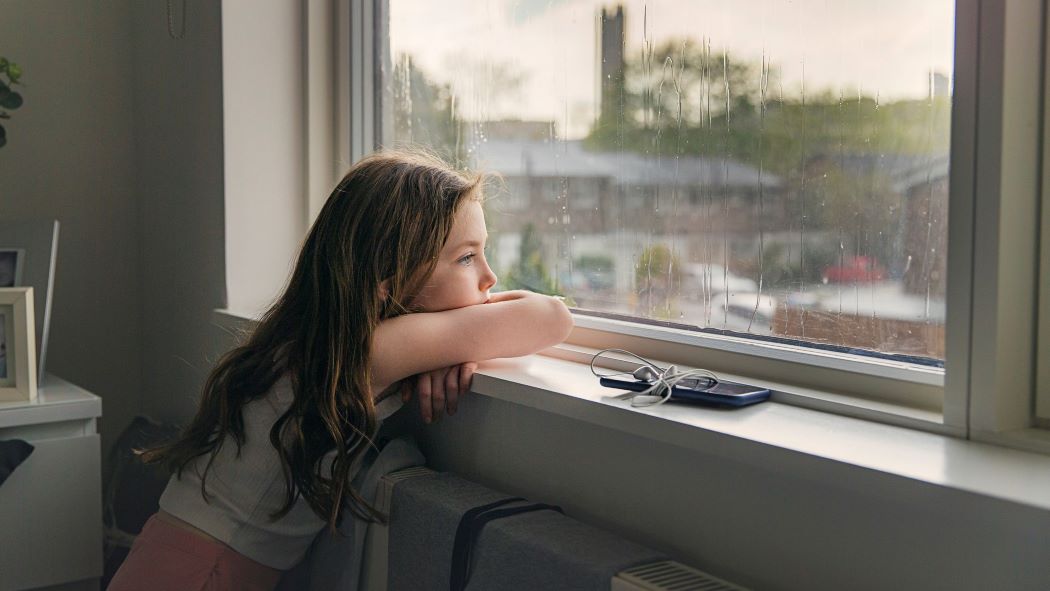COVID-19 has had a devastating impact on the health and well-being of children.

COVID-19 has had a devastating impact on the health and well-being of children.
Recent research in the Journal of the American Medical Association supports this claim. The study found that between 2016 and 2020 there were significant increases in children diagnosed with anxiety and depression, with decreases in physical activity as well as decreases in caregiver and emotional well-being sourced as some of the factors that have caused this decline in children’s mental health.
"After the onset of the pandemic specifically, there were significant year-over-year increases in children’s diagnosed behavioral or conduct problems, decreases in preventive medical care visits, increases in unmet health care needs, and increases in the proportion of young children whose parents quit, declined, or changed jobs because of child care problems,” according to the research.
 To better understand anxiety, how it affects children and what parents can do about it to help their kids cope, we interviewed Dr. Stuart Lustig (left), national medical executive for behavioral health at Evernorth, Cigna Corporation's health services business. His answers and insights are below.
To better understand anxiety, how it affects children and what parents can do about it to help their kids cope, we interviewed Dr. Stuart Lustig (left), national medical executive for behavioral health at Evernorth, Cigna Corporation's health services business. His answers and insights are below.
What is anxiety?
There are many types of anxiety, but they share in common a feeling of worry, nervousness, or unease that is likely out of proportion to whatever is stimulating it. Kids may have very specific fears such as bugs or heights, or social judgment by their peers, separation from their parents, or more general and pervasive concerns that preoccupy them most of the time.
How has COVID-19 affected children's mental health?
COVID-19 has significantly impacted the mental health of our children, including notable increases in anxiety, depression, disturbances in sleep and appetite, and impairment in social interaction. Kids are also keen discerners of parents’ anxieties, and understandably, they have a lot more to be anxious about these days as well. Kids can pick up on that, and if often fuels their own worries.
What are the signs and symptoms of social anxiety in children?
Kids with social anxiety have intense fear or anxiety about being judged and seen negatively by their peers. As a result, many kids will avoid situations in which they feel they might be judged. They worry about how others will rate their appearance, manner of speaking, choice of clothing, and ability to interact with others. They typically avoid settings where such judgments may occur, such as large or even small gatherings, performance opportunities, and sometimes even small social events.
What about separation anxiety? What are the symptoms in kids?
Kids with separation anxiety are afraid of being apart from their parents, often times because they worry that something may happen to their parents, or that something may happen to themselves without their parents around. They often demonstrate extreme anxiety, manifested as crying, arguing, and even aggression when separated. Refusing to attend school is a common problem, although it is important to make sure the child is not being bullied at school or struggling academically, which can also lead to a refusal to go school.
How can parents help children cope with anxiety?
The first step is reassuring your child that they are not alone in their experience and recognizing that you need professional help to ease your child’s fears. Many parents try to address fears or phobias without the help of a behavioral health provider, and it can be a very frustrating experience for both the child and the parent.
Regardless of the type of anxiety disorder, treatment by a licensed therapist or psychiatrist can be very effective. Each child responds differently to treatment so understanding your options and the type of care available is the best place to start.
The treatment principles are the same: use cognitive behavioral therapy to engage the child in examining and challenging (and ultimately disproving) the assumptions that underlie the anxiety. This can be as simple as discussing the possible outcomes to a situation that may be provoking the anxiety. A therapist or psychiatrist might also seek to gradually increase the scale of exposures to anxiety-provoking stimuli to help the child enable mastery at each level of challenge. Younger children may benefit from play therapy as it speaks to them in a way they understand. Some children can be helped by medication as well.
Parents should reach out to their health insurance provider to determine what services may be available to their child, and to them as caregivers, to help navigate mental health challenges. COVID-19 spurred widespread adoption of virtual mental health care for all ages as well, and many providers are willing to see patients outside of traditional work hours and on weekends.

Mental Health Impacts of the Pandemic on Teens
New research by the Economist, commissioned by Cigna, has found that the increase in mental health issues among teens is having an impact on their parents at home and in the workplace.